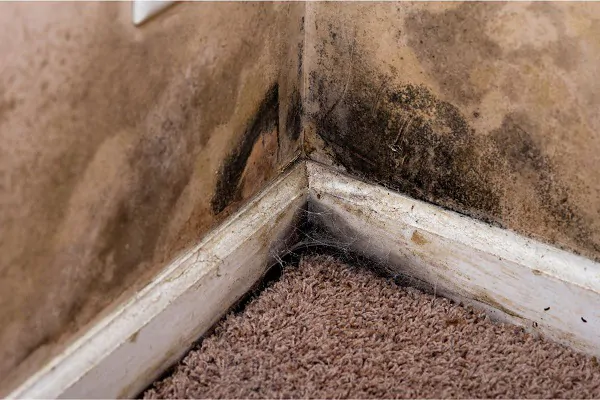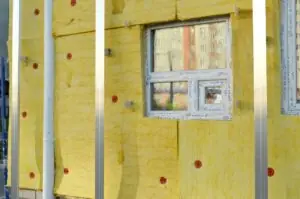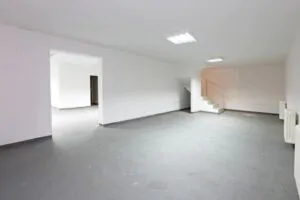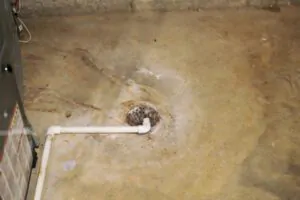Are you planning to make your basement more useful? Or are you thinking about making a multifunctional room out of your basement? If you answered yes to either of these questions, upgrading your basement is one of the best things you can do for your home.
However, basement renovations aren’t a walk in the park because it is affected by several issues, such as moisture, mold, and mildew. This is why, before beginning the basement restoration job, it’s crucial to understand these problems, what causes them, and how to prevent or get rid of them.
Moisture

Leaks and inadequate ventilation are the main contributors to the unpleasant wetness in the basement. If the basement waterproofing system is grossly insufficient, liquids will seep in. In addition to other unfavorable signs, you might see water dripping from the walls, water on the walls, damp air, stains on the carpet or wood, or scorching.
Common Causes of Moisture in the Basement
Anterior Water Leak
Although it may seem obvious, you should always look for interior leaks before figuring out what’s causing dampness in your basement. Numerous things, including showers, sinks, toilets, washing machines, dishwashers, and broken pipes, might cause a water leak. Often, dampness found beneath a basement bathroom or kitchen is caused by an interior water leak. Determine the source of the moisture and see if there is a leak.
Gutter and Downspout Issues
Rainwater should be directed away from the home’s foundation using gutters and downspouts. Rainwater frequently flows toward your foundation if those gutters and downspouts are damaged or missing. Water might build up in the soil around your house when it drains in that direction, and water will likely enter your basement if it builds up around your foundation.
Your Foundation Has Cracks
You can be sure that if your foundation has cracks, water will discover them and seep into your basement. In other cases, the water may even cause fractures. The foundation walls may be able to move if the floor joists are not securely fastened to them, which will then cause cracks to appear. Due to some soil’s poor drainage, water can also develop cracks in the foundation.
What To Do Before the Basement Remodel
Before renovating, you should measure the moisture content to avoid major issues down the road. It will be subject to harm if new walls, flooring, and other amenities are introduced throughout the remodeling process. Additionally, there are frequently unpleasant odors in basements when leaks and floods occur.
Therefore, to completely add to and modify your basement, make sure to handle the moisture issues. So, do not put off taking action if you see moisture in your basement. The longer the issue lingers, the more extensive and expensive the repairs.
Mold
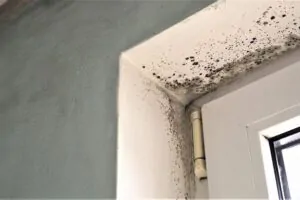
The perfect environment for mold growth is a basement. Mold will develop as long as the oxygen and moisture levels are in the ideal range for flourishing organic growth. If left ignored, the mold might seriously harm the structure of your home because it has to consume whatever it is growing on to be alive.
Dangers of Mold
It is thought that mold growth that goes unnoticed is the root cause of many sick building syndrome cases. Aside from this, mold can lead to various health issues, and some types have been linked to sudden infant death syndrome. Mold can also set off allergies, spread infections, and induce a variety of flu-like symptoms when it is toxic.
Can Mold in Basement Affect Upstairs?
Absolutely! Mold in the basement can definitely affect the upper floors of your home. Mold spores are microscopic and lightweight, allowing them to easily become airborne. As a result, if there is mold growth in your basement, spores can travel through the air ducts or cracks in the walls and floors, reaching the upper floors and spreading the infestation.
What To Do Before the Basement Remodel
The priciest carpet or paint cannot stop the growth of mold. You will eventually spend more money if you redesign your basement without taking care of this problem. Therefore, mold should not be ignored. Before starting the restoration job, getting rid of it should be a top concern because mold would only harm the renovated basement after a few years.
There are numerous alternatives for controlling and eliminating basement mold if it already poses an issue in your house. You might need to look into possibilities for expert mold removal, depending on the size and severity of the mold issue. Particularly extreme poisonous black mold growth situations might call for professional assistance.
Mildew
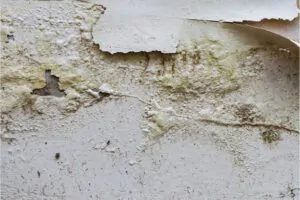
What sets mildew and mold apart from one another? Mold is a tiny fungus that grows in moist settings. On the other hand, mildew is a type of mold. Mold is sticky and fuzzy, while mildew is powdery and frequently gray and white. Mildew is significantly more noticeable because it grows on the surface compared to molds, which burrow. Compared to molds, it has fewer adverse effects on health. However, mildew is deadly even when it is present.
What should I do before remodeling my basement?
Your basement remodeling project won’t be as effective as you expect if you don’t eliminate these three things. The best solution to get rid of them is to install a reliable waterproofing system. So, before you modify or redesign your basement, think about waterproofing.
Call A Professional Basement Finishing Company in Newton, MA
If you want to solve moisture, mold, and mildew issues in your homes, you can count on Newton Basement Finishing to handle the job for you. We provide all types of basement remodeling services to the residents of Newton, MA, and its nearby communities. With our years of dedicated service, we can assure you that moisture, mold, and mildew will never again cause harm to your basement.
Call us now at 617-744-4133 and let us know how we can help you!

